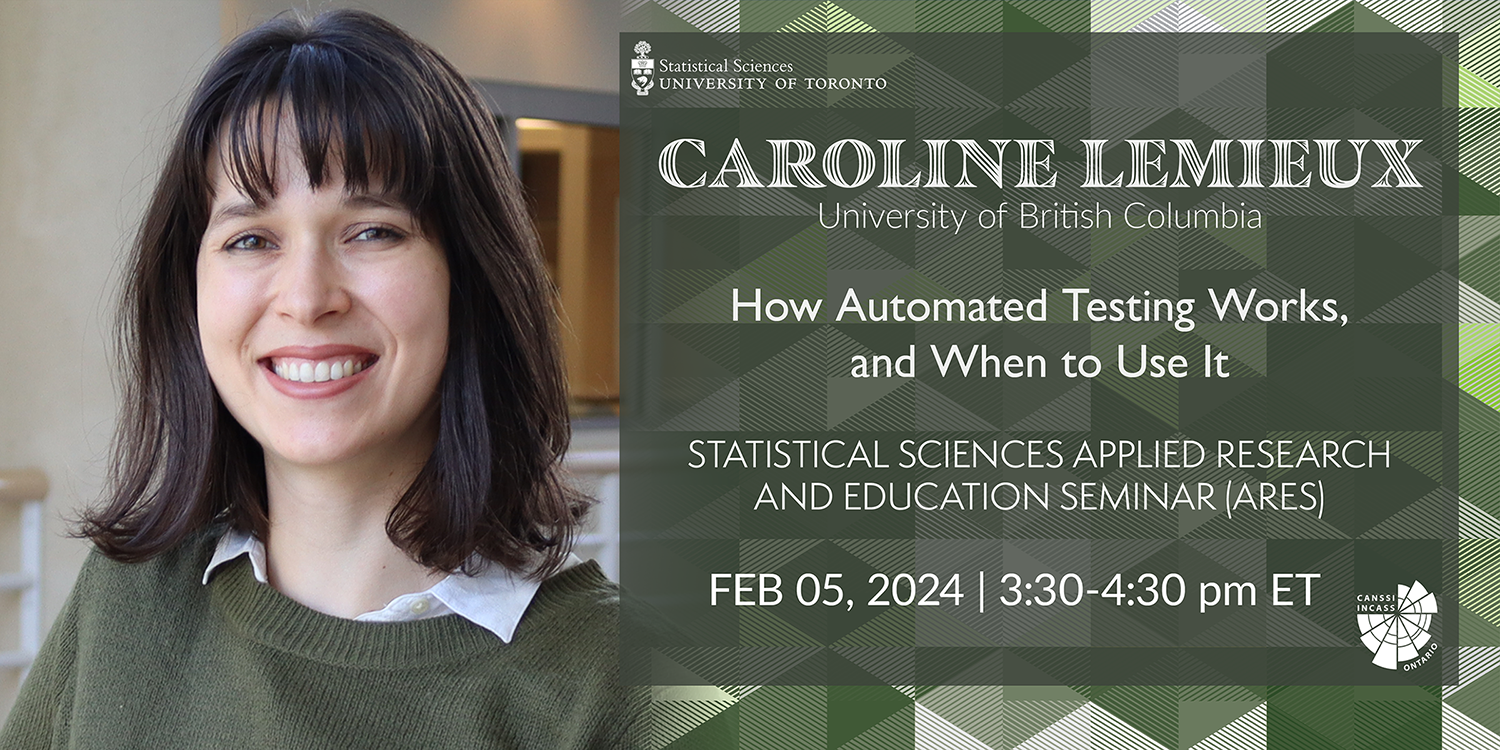- Location
- Rooms 9014 & 9016, U of T 9th Floor, 700 University Avenue, Toronto, ON M5G 1Z5
- Series/Type
- Faculty/Staff Event, Future Student Events, Seminar, Student Event, U of T Community Event
- Format
- Hybrid
- Dates
- February 5, 2024 from 3:30pm to 4:30pm
Links
Join us at the Statistical Sciences Applied Research and Education Seminar (ARES) with
Caroline Lemieux
Assistant Professor
University of British Columbia
Department of Computer Science
Vancouver Campus
Free Hybrid (In-person/Online) Event | Registration Required
Talk Title
How Automated Testing Works, and When to Use It
Abstract
As software becomes increasingly pervasive throughout all different aspects of our society, the consequences of software bugs (inconsistencies between a developer’s intent and the implementation) become increasingly severe. Even basic programming errors can lead to security vulnerabilities with disastrous consequences, such as the Heartbleed bug which led to the shutdown of the Canada Revenue Agency website and the leak of 900 SINs. The field of automated testing aims to uncover these bugs automatically, before they have broader impacts on software users. This talk first covers the importance of manual testing of software as well as the fundamentals of automated testing, in particular randomized testing techniques such as fuzz testing and property-based testing. This will include practical examples as well as pointers to testing tools to use in different scenarios. Then, the talk will cover areas of research and improvement in automated testing, as well as the promise of generative AI techniques in lowering the barrier to entry to fuzz testing and property-based testing.
Speaker Profile
Caroline Lemieux is an Assistant Professor at The University of British Columbia. Her research interests centre around improving the correctness and reliability of software systems by developing automated methods for engineering tasks such as testing, debugging, and comprehension. Her work on fuzz testing has been awarded an ACM SIGSOFT Distinguished Paper Award, Distinguished Artifact Award, Tool Demonstration Award, and Best Paper Award (Industry Track). She was a postdoctoral researcher at Microsoft Research NYC, studying the use of deep learning for automated testing. She completed her PhD in Computer Science at UC Berkeley, advised by Koushik Sen; there, she was the recipient of a Berkeley Fellowship for Graduate Study, and a Google PhD Fellowship in Programming Technologies and Software Engineering. Prior to Berkeley, she completed her undergraduate studies in Combined Honours Computer Science and Mathematics at UBC, winning the Governor General’s Silver Medal in the Faculty of Science.
